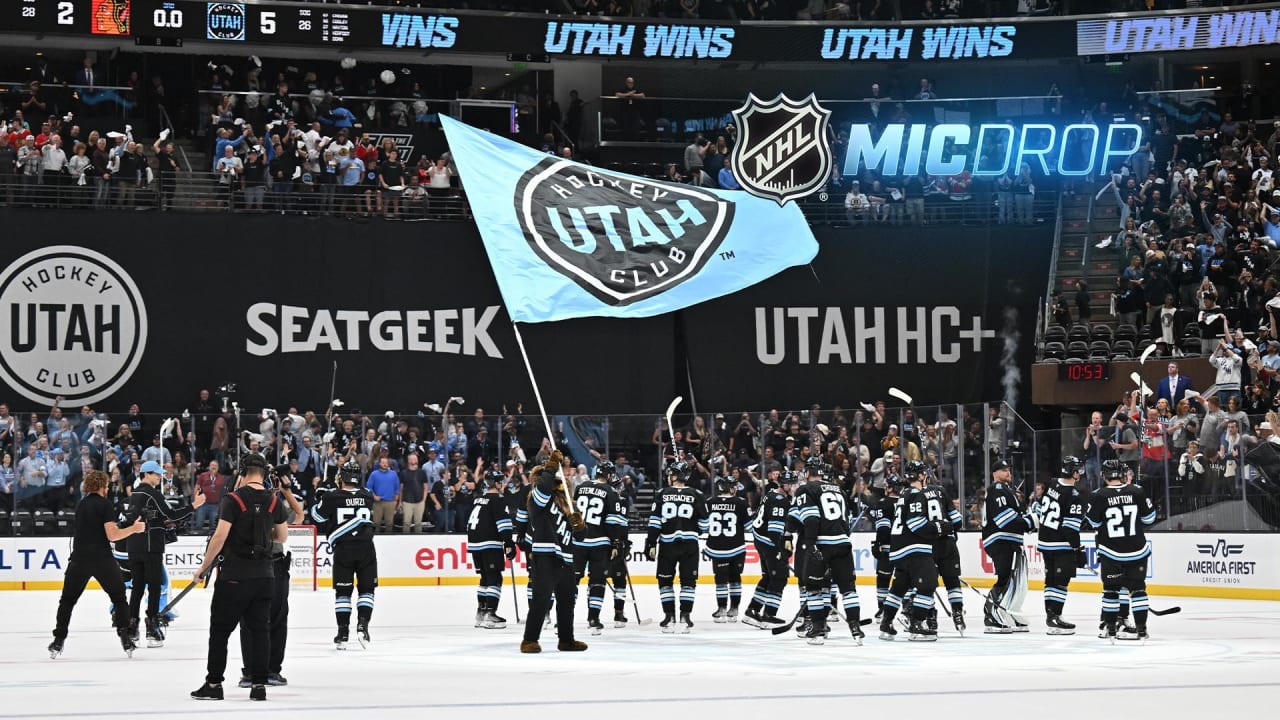
SALT LAKE CITY – Playoff contention may be a distant goal for the Utah Hockey Club in their debut season in Salt Lake City.
However, looking beyond this first year, the franchise`s trajectory appears to be on a positive climb.
Utah is well-positioned for future growth, boasting numerous draft picks over the next three years and a projected $21.5 million in cap space for the upcoming season. Crucially, many key players are committed to the team with long-term, team-friendly contracts. The signing of starting goalie Karel Vejmelka to a five-year extension in March underscores this stability.
Fan engagement has been a standout feature of Utah`s first season. Every regular-season home game has been a sellout, filling the 11,131 hockey-configured seats at the arena.
“Everyone can see the potential we have from a team perspective: the young talent, the exciting future ahead, and the unique appeal of this market,” said Utah owner Ryan Smith. “The way the community has embraced what we’re building has been incredibly powerful.”
Smith faced a significant undertaking when he acquired the Arizona Coyotes approximately a year ago. Relocating players and staff to Salt Lake City meant establishing a hockey infrastructure from scratch. The 2002 Winter Olympics` Utah Olympic Oval, primarily a speed skating facility, was repurposed as a temporary practice venue. Furthermore, the Delta Center, primarily designed for basketball as home to the NBA`s Jazz, required adaptation for hockey.
Even the team`s name, Utah Hockey Club, is temporary, serving as a placeholder while fan voting determines a permanent name to be launched before the 2025-26 season opener.
Despite the initial hurdles, the season`s progress, both on and off the ice, has aligned with Smith`s optimistic vision.
Reflecting on the transition, Smith shared, “It was quite daunting a year ago… walking into a locker room and essentially saying, ‘Trust us, it’s all going to work out.’ People are generally adaptable to change, but uncertainty is challenging, and that period was certainly marked by a lot of unknowns.”
Utah has rapidly cultivated a passionate fanbase, drawn to their energetic and physical style of play. During a recent playoff push, the team has demonstrated strong offensive and defensive capabilities, scoring 21 goals while conceding only nine in their last five games.
While securing a Western Conference wild-card spot this season appears unlikely, Utah`s strong end-of-season performance signals their potential to be a competitive force in the seasons to come.
“We want to build a team with unwavering resilience, a team that never quits,” Utah coach Andre Tourigny commented following an April 1 victory over Calgary. “There’s a no-quit attitude in our locker room, and it’s evident in our players.”
Smith is actively developing the foundational elements that were absent when he initially acquired the team.
In September, Utah is set to inaugurate a new 115,780 square-foot practice facility in Sandy, a southern suburb. This state-of-the-art facility will feature two NHL-regulation ice rinks and serve as the team`s official headquarters, incorporating training, medical, and dining facilities, along with administrative offices and a locker room.
The Utah practice facility will also offer public access starting in January 2026, fostering community engagement with hockey.
“This facility is where we will inspire the next generation of Utah children to embrace hockey,” stated Utah president of hockey operations Chris Armstrong. “It’s where we will establish the enduring culture and identity of this team as we pursue our ultimate goal: bringing a Stanley Cup to Utah.”
Looking ahead, the Delta Center is scheduled for remodeling within the next three years to optimize sightlines for hockey games and ensure it meets NHL standards. It will also be a cornerstone of a new $1.8 billion sports and entertainment district in downtown Salt Lake City, further enhancing the city`s sports landscape.
“This is the logical next step,” Smith affirmed. “And there is much more to come. The arena renovations and the broader developments in the surrounding area are all pieces of a larger vision we are working to realize.”
Smith’s commitment to growing hockey in Utah extends to grassroots development, with plans to fund the construction of up to 20 new community rinks. Through Smith Entertainment Group, he intends to contribute up to $500,000 per rink, investing significantly in the sport`s expansion across the state.

